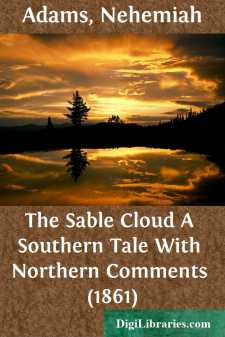Categories
- Antiques & Collectibles 13
- Architecture 36
- Art 48
- Bibles 22
- Biography & Autobiography 816
- Body, Mind & Spirit 145
- Business & Economics 28
- Children's Books 17
- Children's Fiction 14
- Computers 4
- Cooking 94
- Crafts & Hobbies 4
- Drama 346
- Education 58
- Family & Relationships 59
- Fiction 11834
- Foreign Language Study 3
- Games 19
- Gardening 17
- Health & Fitness 34
- History 1378
- House & Home 1
- Humor 147
- Juvenile Fiction 1873
- Juvenile Nonfiction 202
- Language Arts & Disciplines 89
- Law 16
- Literary Collections 686
- Literary Criticism 179
- Mathematics 13
- Medical 41
- Music 40
- Nature 179
- Non-Classifiable 1768
- Performing Arts 7
- Periodicals 1453
- Philosophy 66
- Photography 2
- Poetry 897
- Political Science 203
- Psychology 45
- Reference 154
- Religion 516
- Science 126
- Self-Help 85
- Social Science 82
- Sports & Recreation 34
- Study Aids 3
- Technology & Engineering 59
- Transportation 23
- Travel 463
- True Crime 29
Our website is made possible by displaying online advertisements to our visitors.
Please consider supporting us by disabling your ad blocker.
Bertha and Her Baptism
by: Nehemiah Adams
Categories:
Description:
Excerpt
Chapter First.
Probabilities of an Ordinance for Children.
'Tis aye a solemn thing to me
To look upon a babe that sleeps,
Wearing in its spirit-deeps
The unrevealed mystery
Of its Adam's taint and woe.—Miss Barrett.
Heaven lies about us in our infancy.—Wordsworth.
It is generally believed that, of those who have gone to heaven from this world, by far the larger part have been infants and young children. Born here, they were by one man's disobedience made sinners; born of the Spirit, at their early translation to heaven, they hold an important place in the plan of salvation by Christ. Very beautiful, as well as sublime, is the thought of so large a contribution, to the heavenly world, of human beings in the dawn of their existence, enhancing, as we may suppose, the happiness of heaven by such large admixture of exotic, youthful nature, and illustrating, by their redemption from a helpless state of sin and misery, the unsearchable riches of wisdom and grace.
Has God done anything, in this world, to mark his regard for that class of the human race constituting, thus far, the greater part of the redeemed? We naturally look for something reminding the world of his interest in these subsidiaries of his kingdom. Has he confined his notice to those that are full-grown, and who have, thus far, the larger part of them, withheld from him the fruit of his vineyard? God has a church on earth, with ordinances, symbols, covenant signs: among them is there not some sign, symbol, or ordinance, recognizing those who, more than any other of the race, have, till now, been swelling the numbers of that church in heaven?
Like those elements of astronomical calculation which require and lead men to expect undiscovered planets in a certain quarter of the firmament, analogy, and the known intercourse of God with mankind, and our moral sense, incline us to look for some symbolic recognition of this earthly constituency of heaven by him who ordained and is redeeming to himself a church from among men. Words of interest and love toward them on the part of God, we all know, are not wanting in the Bible. Acts of loving-kindness, also, proving the sincerity of those words, and reaching even to a thousand generations of them that love God, are everywhere seen in sacred history.
But is there no great, conspicuous symbol of these things,—no type, no rite? Symbols appear to be inseparable attendants of God's manifested favor to men. He cannot enter into covenant with an individual, much less a people, but there is at least a stone set up, or a threshing-floor is bought for him, an altar is built, or they pour out a horn of oil. He invites Ahaz to ask of him a sign of his promise: "Ask it," he says, "either in the depths, or in the height above;" and, when that man refuses, God gives him a sign. Emblems, seals and types, in the early dispensation, burst forth like images in the waters of everything along the banks, and even of things far off. Everything has its memorial, its rite; are the children, is the parental relation, forgotten?
Here let us consider that God began with the first parents and the first children of the human race to set forth that great law of his administration, the connection of children with parents for good or evil. Every descendant of Adam is an example under that law. Thus it was for nineteen generations,—from Adam to Abraham.
When, therefore, God reëstablished his church at the call of Abraham, it was no new thing to connect parents and their children in covenant promises and blessings. It had its origin in the very nature of man. Abraham, and the covenant made with him for all believers and their children, are, indeed, a striking illustration of a principle recognized and applied by the Most High; but the principle itself is older than Abraham,—it is coëval with the moral constitution of man....




